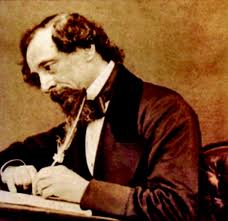Over at Wirecutter, there’s advice about what you should and shouldn’t do when you’re a holiday dinner guest. Don’t bring flowers, do bring ice, and if you arrive with a dish, make sure it’s hot because the oven will be busy.
So you may be wondering, What’s wrong with flowers? Well, apparently you’d be bothering your hosts who would have to interrupt their frantic activity to go to all the trouble of finding you a vase and filling it with water. But if that’s the only problem, and you have your heart set on a bouquet, why not bring your own vase and a bottle of distilled water? Easy-peasy.
As for bringing food when you’re invited to dinner, I have to disagree. If you haven’t been expressly invited to do so, it seems pretty rude. It implies that you have a back-up plan in case your hosts are bad cooks.
And ice? Really? Are you dining out in some desert land where people have minimal refrigeration? Maybe the Wirecutter author was troubled by climate change melting the icebergs in Greenland, got a little confused, thinks that the world is facing an ice shortage. The holiday season does that to people.
But back to those pesky flowers. If you really do believe the Wirecutter author is right, skip flowers and do something much grander: bring a Christmas tree, something artificial that’s already decorated. You’ll be praised for your thoughtfulness. Just forget the tinsel since it’s apparently destroying the planet.
Of course, you might be headed to a Jewish household, in which case you should bring extra Hanukkah candles because sometimes they break or get scarfed by a dog. If your hosts have enough, no matter: it shows that you care. And while you’re at it, some potato pancakes wouldn’t hurt, since everyone argues about whose bubbeh makes the best ones.
Don’t debate, just stop by Whole Foods for their version and stay above the fray. And yes, bring your own olive oil and counter portable countertop stove so you don’t have to bug you hosts. Get there early so you’ll be ready for the other guests. Now I know I advised against bringing food, but latkehs are more than food, they’re an institution.
Oh, and finally Wirecutter suggests that if you bring something like a bottle of whiskey, hide it so you don’t have to share it with the other guests. Whatever happened to wine that joined other bottles on the table? Did Scrooge write that column?
And do people really need to be reminded to at the very least send an email thanking their hosts? Were the readers of Wirecutter raised by wolves? Maybe the subtext of this article is a dinner party that went horribly wrong, a version of the B-52’s song “Party Out of Bounds.”
Lev Raphael is the author of 26 books in genres from memoir to mystery.

